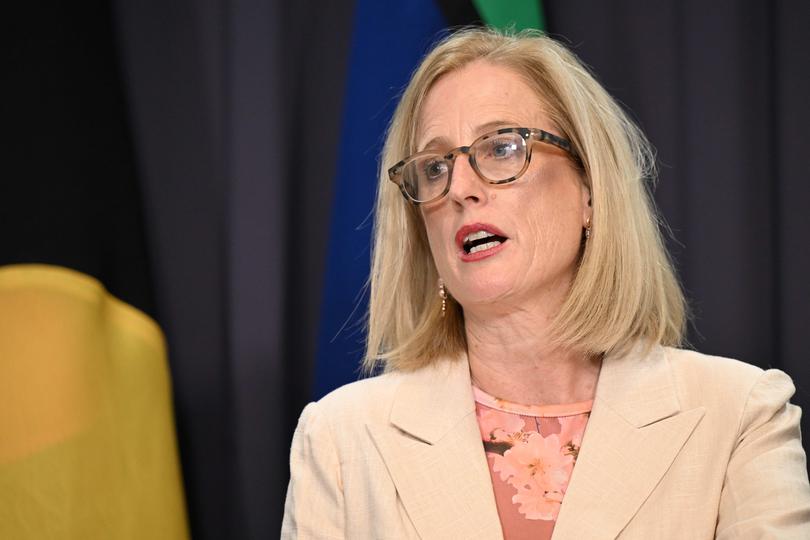Brittany Higgins case prompts Parliament House reforms that could see politicians fined for bad behaviour

Federal politicians could be fined thousands of dollars, suspended from parliament and stripped of lucrative committee membership under sweeping reforms set to be finally introduced in response to Brittany Higgins’ allegations of sexual assault in Parliament House.
An enforcement body with powers to investigate serious allegations of misconduct is one of the last outstanding recommendations of Kate Jenkins’ 2021 Set the Standard Report, commissioned in the wake of Ms Higgins’ allegations she was raped in a minister’s office.
The review found one in three parliamentary staffers had experienced sexual harassment, and called for Parliament to urgently lift workplace standards inside Parliament House.
Sign up to The Nightly's newsletters.
Get the first look at the digital newspaper, curated daily stories and breaking headlines delivered to your inbox.
By continuing you agree to our Terms and Privacy Policy.The Labor caucus has now ticked off legislation to set up the Independent Parliamentary Standards Commission, and will introduce a Bill to Parliament on Wednesday — 20 months after the recommended November 2022 deadline.
With hopes it will be up and running by October, the Commission would be tasked with upholding codes of conduct, and would be able to impose sanctions that deal with allegations of sexual assault, assault, sexual harassment, harassment and bullying.
The Nightly understands that under Labor’s proposal, up to nine commissioners would be employed who could carry out investigations, which could culminate in sanctions on members of Parliament and their staff, and recommend sanctions to non-Commonwealth employed workers in Parliament House.
Under the proposal, politicians — whether a backbencher or a minister — could be fined between two to five per cent of their annual base salary, currently $233,660, which equates to between $4670 and $11,680.
The Commission could also recommend to the House of Representatives or the Senate that the offending MP be discharged from committees, suspended from parliament, made to undergo training or sign behavioural agreements, or be subject to other sanctions by the commission.

Under the proposal, there would be further actions for parliamentarians who don’t comply, and an appeals process would also be made available.
If the allegations are a police matter, the Commission would likely leave it to law enforcement, and could liaise with police.
In April, Women’s Minister Katy Gallagher said the commission would help ensure serious complaints could be adequately dealt with.
“I think there has been a big change in the way this building operates as a workplace, and this is the final kind of piece of the puzzle in making sure that we’ve got all the systems in place to make sure that people are held to account for their behaviour,” she said at the time.
Findings wouldn’t necessarily be made public, but under the proposal findings would be published if a repeat offender is sanctioned, or if sanctions aren’t complied with. There would be confidentiality protections in place.
A joint parliamentary committee would be established to have oversight, and the Commission would work in lockstep the Parliamentary Workplace Support Service, which was another recommendation of Ms Jenkins’ report and was established last year.
Meanwhile, parliamentary staffers found to have engaged in misconduct will be at the mercy of their boss, but the commission could recommend fines of up to two per cent of their salary, reassign employees to different duties, subject them to training, or even sack them.
It comes as the Federal Government offered the 2000 political, ministerial and electorate staffers an 11.2 per cent pay rise over the next three years.
The deal also includes a host of new leave entitlements in line with Labor’s broader industrial relations priorities, including expanded parental leave, domestic violence leave, and cultural leave.

